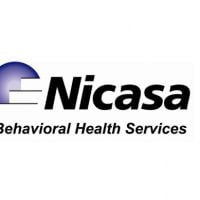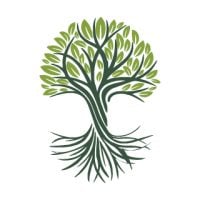Ascension All Saints Mental Health and Addiction
Drug Rehab Center in Lerna, Illinois
- Substance Abuse
Ascension All Saints Mental Health and Addiction is a comprehensive addiction treatment facility in Lerna, IL that provides personalized care and evidence-based practices such as CBT and medication assisted therapy to help clients build strong foundations for long-term recovery.
About Ascension All Saints Mental Health and Addiction in Illinois
Ascension All Saints Mental Health and Addiction is a substance abuse treatment facility located in Lerna, Illinois. Dedicated to helping individuals struggling with substance abuse, the facility offers a range of services to support their journey towards sobriety. Ascension All Saints Mental Health and Addiction is known for their outpatient programs, which provide flexibility for individuals who may need to continue with their daily routines while receiving treatment. They also offer aftercare support to help patients maintain their progress after completing their initial treatment. With a focus on understanding the unique needs of each individual, Ascension All Saints Mental Health and Addiction provides a welcoming and supportive environment for those seeking help.
Ascension All Saints Mental Health and Addiction offers various levels of care to cater to the specific needs of individuals seeking treatment for addiction and substance abuse. Their outpatient programs allow patients to receive therapy and support while still being able to live at home and continue with their daily responsibilities. Additionally, they offer intensive outpatient programs for individuals requiring a more structured and intensive approach to recovery. Ascension All Saints Mental Health and Addiction employs evidence-based treatment methods, such as cognitive-behavioral therapy, to help patients address underlying issues and develop healthy coping mechanisms. With a focus on aftercare support, they provide resources and guidance to individuals transitioning back into their daily lives, aiming to promote a lasting recovery.
Genders
Ages
Modality
Additional
Conditions and Issues Treated
Substance abuse is the excessive use of any drug. This includes alcohol, medications, and illegal drugs. Substance abuse is treated with a combination of physical and mental treatments. Patients detox and follow up with therapies that target the underlying cause of the addiction. Substance abuse is a severe problem that can be successfully treated with a variety of therapies. Ascension All Saints Mental Health and Addiction treatment uses a combination of therapies along with other resources to overcome substance abuse.
Levels of Care Offered
This center offers a variety of custom treatment tailored to individual recovery. Currently available are Aftercare Support, Intensive Outpatient, Outpatient, with additional therapies available as listed below.
Intensive outpatient treatment is a type of comprehensive addiction care. Unlike conventional residential treatment programs, the patients live at home during the recovery process. This means that one can continue working and caring for their families. These also allow people to keep pursuing their studies while also working on their sobriety.
Outpatient treatment can help one transition to normal life from the round-the-clock supervision and treatment available during inpatient treatment. It is an excellent tool to ensure long-term recovery. However, it is essential to note that intensive outpatient treatment in itself does not remove patients from the real-world setting. This means there’s always a higher risk of coming across environmental triggers. To further prevent relapse, an outpatient treatment center should be able to provide ongoing support services.
Once the patient is enrolled in an intensive outpatient treatment program, they will be expected to attend therapy and group meetings daily for a stipulated period. The frequency and duration of each session will depend on the patient’s needs and level of addiction. This can help curb the habit and deal with underlying issues that led to it. Most of these professional treatments are designed to allow patients to structure their daily schedules in a way that is conducive to recovery.
“Outpatient treatment is ideal for those who have a lower intensity addiction. It’s also suitable for those with a supportive environment and those on a tight budget.
Outpatient treatment can be considered the lowest intensity level of addiction treatment. It is ideal for early phase addiction or lower intensity addictions. It may involve weekly sessions instead of daily. Peer group support, 12-step programs, and individual counseling may still be used and anti-addiction medication.
Aftercare support is vital to those who have completed a drug or alcohol treatment program. This support comes in individual and family counseling, treatment of psychiatric and other medical conditions, and medications to reduce cravings. It helps recovering addicts adjust to normal day-to-day activities and can last for a year or longer.
The majority of drug and alcohol addicts who receive aftercare treatment do not relapse. It is estimated that without aftercare, the relapse rate will be between 70 to 90 percent for most people. Aftercare is the final stage in addiction recovery, but it will also help maintain sobriety if relapse does occur.
Therapies & Programs
No single treatment works for all addicts; therefore, the goal of treatment and therapy should be to find what works best for each individual. Some people requiring addiction treatment may only need a few weeks of inpatient care. Others will require long-term residential care. Tolerance and withdrawal levels vary from person to person and thus affect the intensity of the treatment needed.
If an individualized approach to treatment and therapy is not offered, addicts may fail to reap benefits from their efforts. Professionals must customize plans according to their patient’s needs, limitations, and strengths. The goal of all forms of addiction treatment should be for addicts to find healthy ways to cope with their addiction and its underlying causes.
This type of therapy involves the use of a variety of therapeutic techniques to help addicts recover from past traumas that might have triggered their substance abuse. During these sessions, therapists will work with the addict to address painful memories and learn how to cope effectively with stressors as they arise.
During these types of sessions, therapists will typically focus on three main goals:
- Identifying and expressing painful emotions associated with past traumas.
- Reducing the effects of stress on an addict’s life by developing more effective coping mechanisms.
- Developing healthy ways of thinking about stressful situations that can help addicts avoid substance abuse issues in the future.
This type of therapy is typically used in conjunction with other types of addiction treatment services. By identifying and dealing with the root cause of addiction, most addicts can overcome their cravings and prevent relapse once they leave rehab.
Many different types of addiction treatment services exist to help addicts safely get sober, but it’s important for recovering individuals to find a therapist or support group that will help them address the root cause of their addiction.
Dialectical Behavior Therapy is a form of Cognitive Behavioral Therapy that helps patients understand the relationship between their thoughts, feelings, and behaviors. It is beneficial for those whose addictions and behaviors stem from severe mental health issues. It aims to help the patient achieve their goals and identify how they can enhance their lives.
Cognitive-behavioral therapy is a talking-based method that helps people struggling with addiction replace destructive behaviors with healthier ones. CBT also helps them identify the underlying thoughts and beliefs that cause these behaviors in the first place and ways to control those thoughts and feelings. It can be administered as a holistic therapy or as part of combination therapy and—as opposed to turning to drugs and alcohol—helps addicts learn how to respond to negative thoughts instead.
Additional Details
Specifics, location, and helpful extra information.
Lerna, Illinois 53403 Phone Number(252) 687-2222 Meta DetailsUpdated November 25, 2023
Staff Verified
Ascension All Saints Mental Health and Addiction Patient Reviews
There are no reviews yet. Be the first one to write one.
Lerna, Illinois Addiction Information
In 2016, more than 2,350 Illinoisans died from drug overdoses. More than 5,500 deaths annually occur in Illinois due to the abuse of alcohol and other drugs. 7.17% of Illinois residents reported using illicit drugs in the past month (2018). Substance abuse costs the state approximately $3.5 billion every year.
Treatment in Nearby Cities
- Lake Villa, IL (25.4 mi.)
- Skokie, IL (47.4 mi.)
- Olney, IL (276.1 mi.)
- Hinsdale, IL (63.8 mi.)
- Oak Forest, IL (77.0 mi.)
Centers near Ascension All Saints Mental Health and Addiction




The facility name, logo and brand are the property and registered trademarks of Ascension All Saints Mental Health and Addiction, and are being used for identification and informational purposes only. Use of these names, logos and brands shall not imply endorsement. RehabNow.org is not affiliated with or sponsored by Ascension All Saints Mental Health and Addiction.

